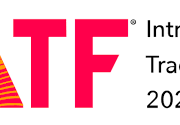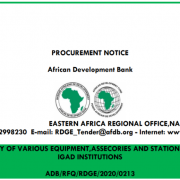Africans Urged to Carefully plan and execute preparatory work for the success of Single Window System
Source: www.uneca.org
The government of The Gambia, in collaboration with the United Nations Economic Commission for Africa (ECA) are holding a technical workshop on the Gambia’s national AfCFTA implementation strategy. Experts from the public and private sector, representing government, civil society, young people, women and academia will meet from 17-18 December in Banjul, the Gambia.
This National AfCFTA Implementation Strategy for The Gambia identifies priority actions to be undertaken by the government to effectively realize the potential benefits of the AfCFTA. The strategy identifies the following: priority products for export into various African markets, the export potentials for these priority products in various markets, opportunities for regional value chain development.
In addition, the national strategy highlights other cross-cutting issues including gender, youth, MSMEs as well as environment and climate change in order to ensure inclusivity and sustainability. Finally, it recommends a National Implementation Committee (NIC) whose overall mandate is to oversee implementation of the strategy and a monitoring and evaluation framework that will track progress on the implementation of the Agreement.
“The National AfCFTA Implementation Strategy for the Gambia seeks to support the objectives of Gambia’s National Trade Policy of 2018-2022, which aims to focus on measures that support key productive sectors of the economy, enhance capability for increased market access, address trade facilitation issues and enhance consumer protection and welfare. The AfCFTA Strategy does this by providing a blueprint to advance The Gambia’s deeper integration at the continental level.” says Mundunge Ghitu, Economic Affairs Officer at the United Nations Economic Commission for Africa (ECA).
The AfCFTA entered into force on 30 May 2019 having been ratified by the required 22 countries. Currently, 54 countries have signed, and 29 countries have ratified the AfCFTA. The AfCFTA provides the opportunity for Africa to create the world’s largest free trade area, with the potential to unite more than 1.2 billion people, in a $2.5 trillion economic bloc and usher in a new era of development. The AfCFTA has the potential to generate a range of benefits through supporting trade creation, structural transformation, productive employment and poverty reduction.
The work in the Gambia on implementing the AfCFTA is part of a comprehensive project aimed at deepening Africa’s trade integration through effective implementation of the AfCFTA. Financially supported by the European Union, ECA has been working with its partners including the African Union Commission (AUC), International Trade Centre (ITC), United Nations Conference on Trade and Development (UNCTAD) and a selection of independent trade experts to ensure effective AfCFTA implementation strategies.






 Image by
Image by 
